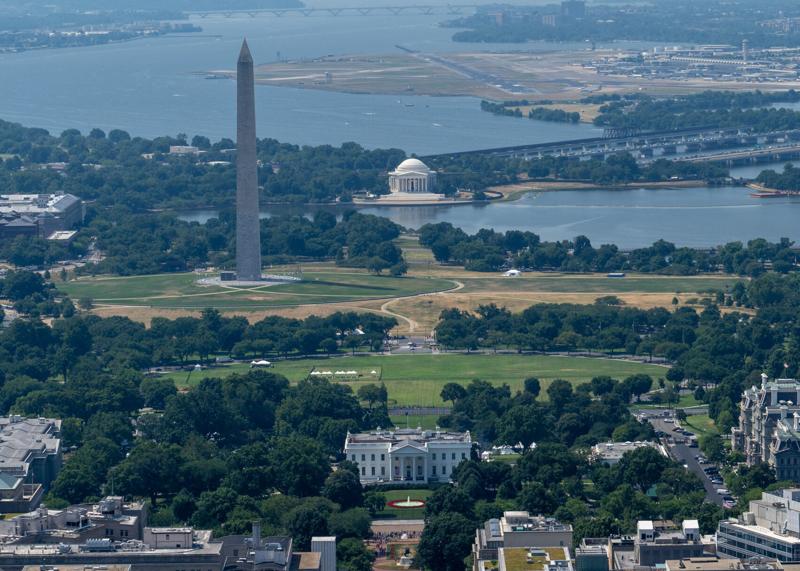A recent debate over relocating federal agencies out of Washington, D.C., highlighted competing views on how such moves could impact government efficiency and operations—a discussion that resonates with Virginia, home to one of the nation’s largest federal workforces.
The debate, part of the Steamboat Institute’s Campus Liberty Tour at Colorado Mesa University, featured William Perry Pendley, former acting director of the Bureau of Land Management under the Trump administration, and Mary Jo Rugwell, retired BLM Wyoming state director and current president of the Public Lands Foundation, debating whether moving agencies out of the capital improves decision-making or disrupts oversight.
“President Trump made this a cornerstone of his campaign,” Pendley said, pointing to a recent executive order to move 100,000 Department of Agriculture employees out of the capital. He called the original BLM relocation a “great success,” citing improved decision-making during wildfires and closer contact with local communities.
Rugwell warned the disruption wasn’t limited to the BLM. “Much of what I’ll say would apply to other organizations of comparable size and complexity,” she said, adding that moving federal leadership out of D.C. can create gaps in coordination, oversight, and public engagement that ripple through multiple agencies.
Pendley argued that relocating agencies like the BLM closer to the lands they manage enhances decision-making and cuts red tape. He pointed to his experience during the Pine Gulch fire when being on the ground allowed for more effective coordination with firefighting crews.
Rugwell pushed back, arguing that the move hurt the agencies’ ability to work with Congress and federal partners. She said scattering leadership has already caused staffing shortages and made it harder for agencies to weigh in on national policy.
Virginia, which had about 192,000 federal employees in March 2025, could be directly affected. Federal jobs made up 4.5% of the state’s nonfarm workforce. New State labor data shows Virginia’s unemployment rate ticked up to 3.2% in March, including a loss of 4,100 federal jobs.
Maryland could also feel the effects. The state is home to more than 147,000 federal employees, with major agencies like the National Institutes of Health, Food and Drug Administration and NOAA headquartered there.
While many federal agencies already operate regional offices nationwide, most leadership and policy coordination still happen in D.C., near Congress and the White House.
A live poll taken during the debate showed just how split the audience was. Before the debate, 49% supported relocating federal agencies, 33% opposed it, and 18% were undecided. After the debate, support remained at 49%, but opposition rose to 47%, with only 4% still undecided.
Pendley, who helped oversee the 2020 BLM relocation and supports expanding the effort under the Trump administration’s latest executive order, said closing agency headquarters in D.C. and moving staff closer to the land they manage is long overdue. “I say it was a great success before being a great success again. Let’s get it done.”
Rugwell said the risks of decentralization extend beyond the BLM, warning that scattered oversight and inconsistent direction could undermine agency performance nationwide.







